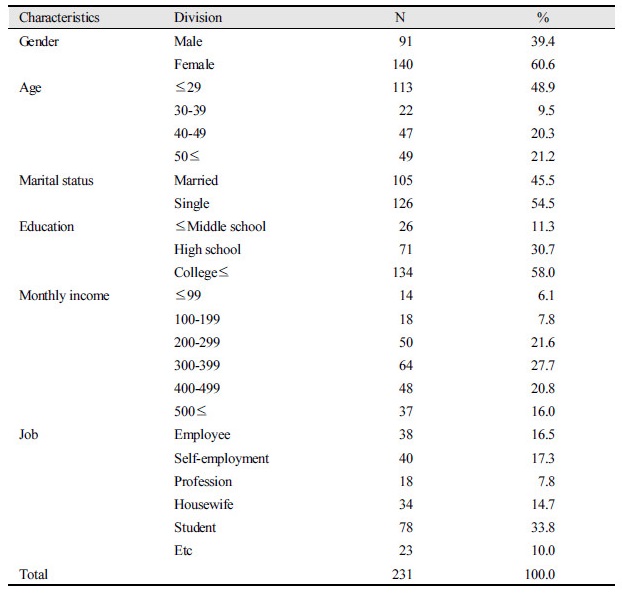Abstract
Objectives: This study was conducted to examine the degree of dental fear according to the experiences of the preventive dental care services. Methods: A self-administered survey was conducted in the subjects of male and female teenagers who lived in Seoul and Gyeonggi-do areas, and 231 copies of collected data for a month from July 26, 2017 were analyzed to find the following results. Results: In terms of the experiences of the preventive dental care services, they were classified in the order of preventive scaling (67.5%), education of toothbrushing (60.6%), fluoride application (49.8%) and sealant (44.2%). For the degree of dental fear according to their general characteristics, treatment avoidance factor (2.56±1.19) in the married was higher than that in the unmarried. All of treatment avoidance, physiological response and fearful stimulus induction factor, and the entire degree of fear were higher when there were experiences of the preventive dental care services than those without such experiences. The factors affecting the degree of dental fear included dental health conditions, experiences of toothbrushing education, sealant and fluoride application. In case those without the experiences considered their dental health condition was not healthy, the degree of dental fear was increased. Conclusions: This study verified that the degree of dental fear was increased in case no experiences of the preventive dental care services. Therefore, it is necessary to seek out the measures for promotion of the preventive dental care services, to reduce the degree of dental fear and enhance the dental health.
Figures & Tables

Table 1. General characteristics of the subjects


